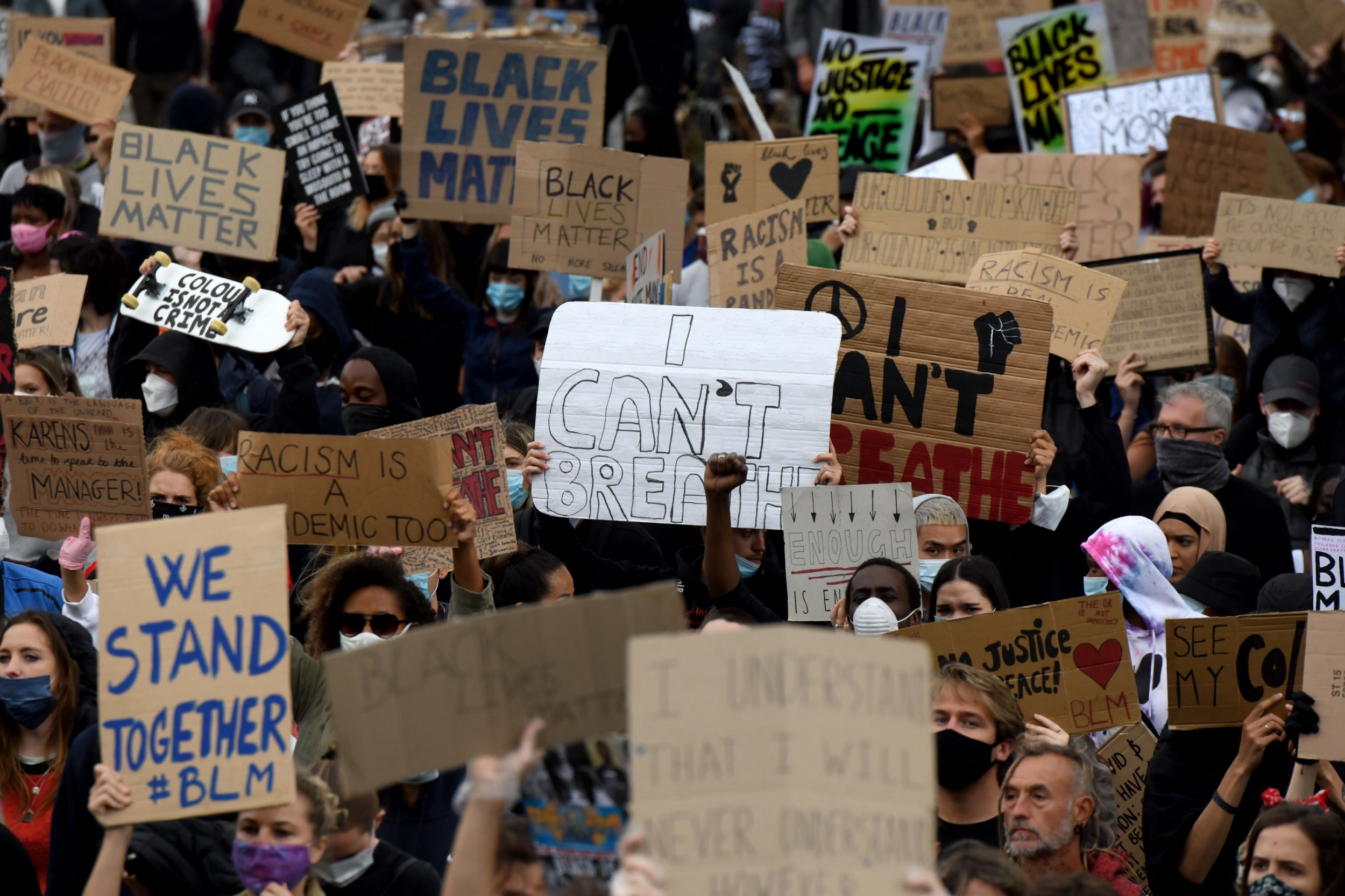Simeon Francis: Investigation launched after black man dies in police custody in Devon
Mr Francis was ‘found unresponsive in his cell’ and a cause of death has not yet been identified
A black man has died in British police custody after becoming “unresponsive” in a cell.
A watchdog is investigating the circumstances of Simeon Francis’ death in Devon.
The Independent Office for Police Conduct (IOPC) said he was arrested shortly before 1am in Exeter on 20 May and booked into custody at Torquay police station.
He was “found unresponsive in his cell” and an ambulance was called, but Mr Francis was pronounced dead at around 6pm on the same day.
A preliminary post-mortem examination did not identify a cause of death and further tests are to be carried out, while an inquest was opened and adjourned on Friday.
IOPC regional director Catrin Evans said: “Our thoughts are with Mr Francis’ family and friends following his death. We will be keeping his family updated during the course of our independent investigation.
“Our investigators have begun gathering evidence and statements from officers. We are analysing a considerable amount of CCTV footage from the custody suite.
“We are looking at the level of care provided during the period of detention, including the frequency and adequacy of checks carried out.”
The death was referred to the IOPC by Devon and Cornwall Police.
In a statement on 21 May, the force said Mr Francis was found to be “seriously unwell” the previous afternoon.
“Unfortunately, despite efforts by officers and paramedics, he was declared deceased,” a spokesperson said. “The force is cooperating fully with an independent IOPC investigation.”
According to analysis of official statistics by the Inquest charity, there have been 1,741 deaths in police custody, or following contact with officers, in England and Wales since 1990.
Of those who died, 14 per cent were black and minority ethnic, which is proportionate to the population as at the 2011 census.
“However, Bame people die disproportionately as a result of use of force or restraint by the police, raising serious questions of institutional racism as a contributory factor in their deaths,” a report by Inquest said.
There is no suggestion that the use of force was linked to Mr Francis’ death and the full circumstances are under investigation.
The IOPC announced new details of its investigation on Monday, following a second weekend of protests sparked by the death of George Floyd in the US.
Following two days of largely peaceful rallies in London, small groups of demonstrators clashed with police on Saturday and Sunday.
Scotland Yard said 35 officers had reported suffering injuries by the early hours of Monday morning, including two who required hospital treatment.
It has used the controversial “kettling” tactic and horses to contain groups it said were committing disorder.
A total of 36 people were arrested during Sunday’s protests for offences including violent disorder, criminal damage and assaulting police.
Investigations are under way into a number of incidents, including the vandalism of a statue, sites and buildings of “national importance”, the Metropolitan Police said.
The Met’s Commissioner, Cressida Dick, said: “In recent days a minority of protesters sought confrontation with police, leading to many officers being injured, including several seriously.
“When officers sought to protect colleagues and iconic landmarks, they faced further obstruction and sustained assault.”
Addressing parliament on Monday, the home secretary said the protests violated coronavirus laws that ban public gatherings of more than six people.

Priti Patel said an estimated 137,500 people had attended Black Lives Matter protests across the UK, with about 200 taking place over the weekend.
“While the majority were peaceful, a lawless minority of protesters have regrettably turned to violence,” she said.
“The thugs and criminals responsible are already being brought to justice. As of this morning, the total number of arrests stood at 135.”
On Friday, parliament’s Home Affairs Select Committee announced an inquiry on policing and race.
MPs will be taking evidence on issues including the use of force, stop and search, and the disproportionate use of coronavirus fines for black people.
The inquiry marks 21 years since a landmark report into the murder of black teenager Stephen Lawrence found institutional racism in the Metropolitan Police and other British forces.
The committee’s chair, Yvette Cooper, said: “The murder of George Floyd in Minnesota and the subsequent outpouring of solidarity with the Black Lives Matter movement across the world has rightly shone a bright spotlight on racial inequality and injustice everywhere.
“All of us have a responsibility to identify and tackle racism and injustice wherever we find it.”
Boris Johnson said he was “appalled and sickened” to see what happened to Mr Floyd, while chief constables from across the UK issued a joint statement saying they “stand alongside all those across the globe who are appalled and horrified”.
They vowed to “tackle bias, racism or discrimination wherever we find it”.
However, writing in The Independent, the chair of the IOPC said forces must listen and respond to “real and growing concerns” about racism within their own ranks.
The director general of the police watchdog, Michael Lockwood, added: “There must be more research to understand issues of disproportionality, as well as assurance and scrutiny around tactics like use of force, and stop and search.”
In the year to March 2019, 16 per cent of police use-of-force incidents in England and Wales were against black people, who only make up 3.3 per cent of the population.
Black people were also involved in 25 per cent of police firearms incidents and a fifth of “less lethal weapons” incidents, including Tasers.

